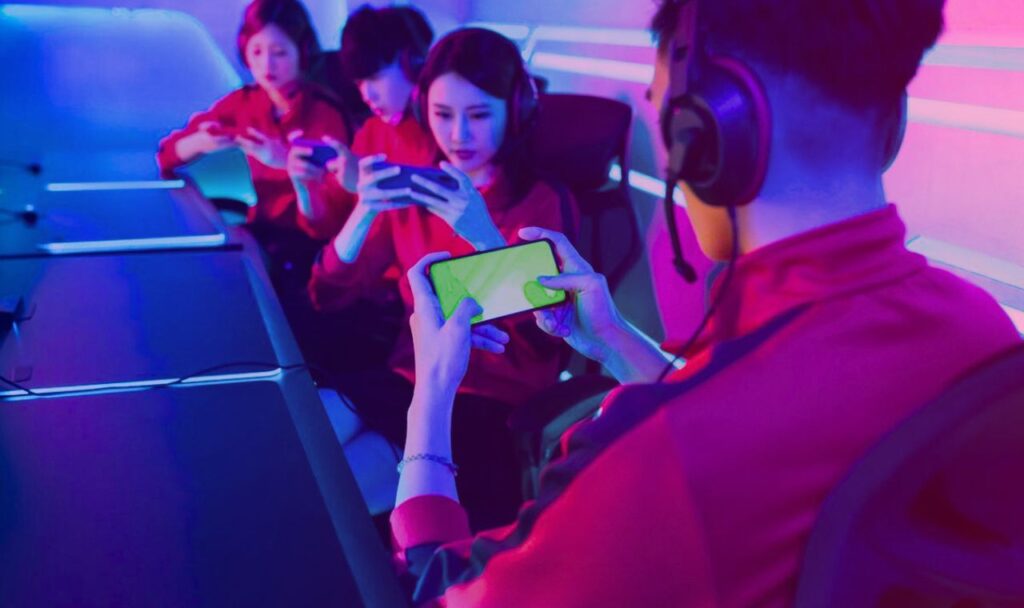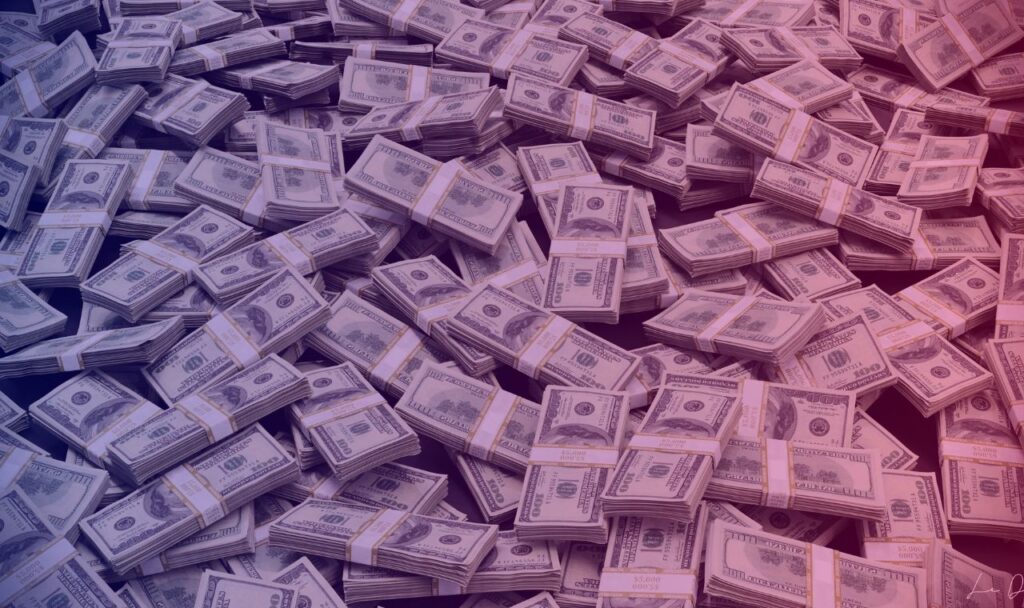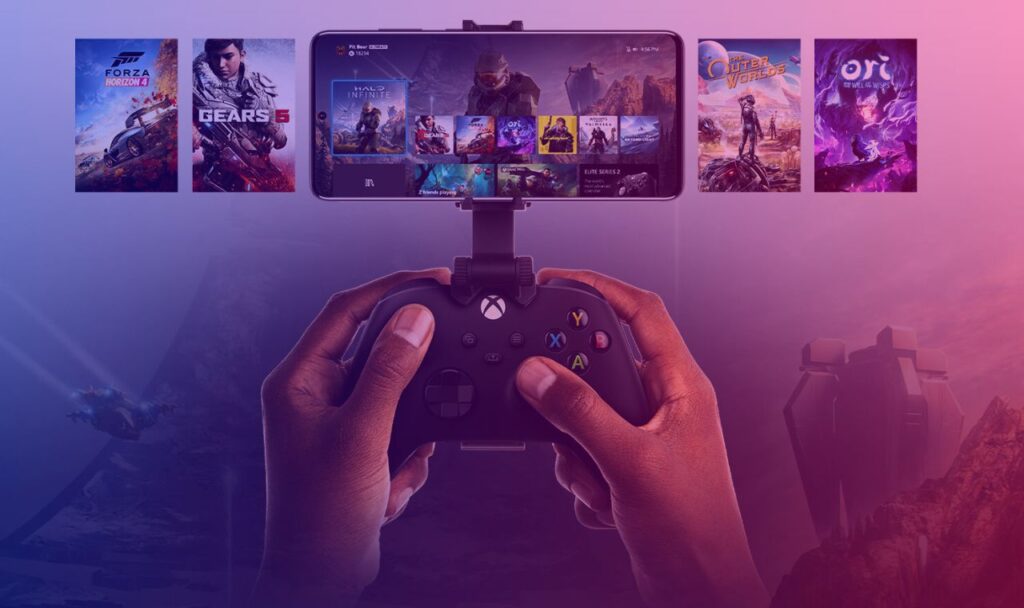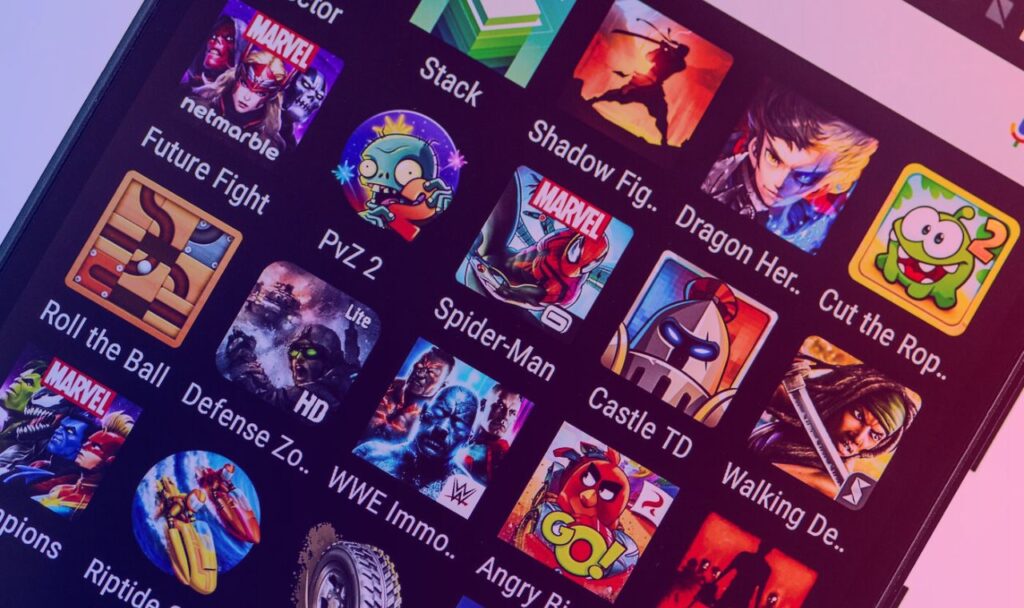Mobile gaming has had a transformative impact on the gaming industry, particularly through the accessibility and reach it offers. Smartphones have made gaming available to a broader audience, breaking the barriers of traditional gaming platforms. With affordable devices and widespread availability, mobile gaming has attracted casual gamers and expanded the gaming demographic.
The growth of mobile gaming has brought about a significant increase in market revenue. Mobile games generate billions of dollars each year, surpassing other gaming platforms. The availability of free-to-play games with in-app purchases has introduced new monetization models, providing opportunities for game developers and publishers to generate revenue.
Smartphones have been a catalyst for innovation in game design. They have pushed developers to create unique and immersive gaming experiences tailored specifically for mobile devices. Touchscreen controls motion sensors, and augmented reality capabilities have revolutionized the way players interact with games. Mobile gaming has also popularized bite-sized gameplay experiences that align with the on-the-go nature of smartphone usage.
Mobile gaming has fostered social connectivity, allowing players to engage in multiplayer experiences and interact with friends and strangers worldwide. The inclusion of social features such as chat systems, leaderboards, and in-game communities has enhanced the social aspect of gaming, creating a sense of community among players. Furthermore, the rise of mobile esports and competitive gaming has added a new dimension to mobile gaming, with professional players and large audiences participating in tournaments and events.
Mobile gaming has reshaped the gaming landscape by making gaming accessible to a wider audience, driving market growth, fostering innovation in game design, and promoting social connectivity and competitive gaming experiences. With smartphones at the forefront, mobile gaming has become a powerful force within the gaming industry, influencing traditional gaming platforms and paving the way for the future of gaming.
The rise of mobile gaming has also influenced the traditional gaming industry, leading to a convergence of mobile and traditional gaming elements. Console and PC gaming platforms have embraced mobile gaming features, integrating mobile companion apps, cross-platform play, and mobile-inspired design elements. The success of mobile gaming has prompted developers to rethink game mechanics, user interfaces, and player engagement strategies across all gaming platforms, resulting in a more diverse and inclusive gaming ecosystem. The impact of mobile gaming on the traditional gaming industry continues to shape the evolution of gaming experiences, blurring the lines between different platforms and opening up new possibilities for players.
Table of Contents
The impact of mobile gaming and how smartphones have transformed the way people play games.
1. Accessibility and Reach

Mobile gaming has revolutionized the way people access and engage with games. With the advent of smartphones, gaming has become more accessible than ever before. The affordability and widespread availability of smartphones have opened up the world of gaming to a wider audience. Unlike dedicated gaming consoles or PCs, smartphones are portable and easily accessible, allowing people to play games anytime, anywhere. This accessibility has attracted millions of casual gamers who may not have had access to traditional gaming platforms. From young children to older adults, people from all demographics can now enjoy gaming on their smartphones, bridging the gap between gaming enthusiasts and mainstream consumers.
In addition to affordability, smartphones offer a user-friendly and intuitive interface that makes gaming more approachable. Touchscreen controls provide a natural and intuitive way to interact with games, eliminating the need for complex button configurations or specialized controllers. This simplicity in controls has made gaming on smartphones more inviting to newcomers and casual gamers who may not be familiar with traditional gaming setups. Moreover, smartphones are now equipped with high-quality graphics, sound systems, and powerful processors, delivering immersive gaming experiences that rival traditional gaming platforms.
Furthermore, the widespread availability of smartphones has democratized gaming by breaking down barriers of entry. In the past, gaming required a significant investment in expensive gaming hardware, such as consoles or gaming PCs. This limited the accessibility of gaming to those who could afford these devices. However, smartphones have become ubiquitous in many parts of the world, making gaming accessible to a larger population. The affordability and versatility of smartphones have eliminated the need for specialized gaming equipment, allowing anyone with a smartphone to indulge in their favorite games. This inclusivity has expanded the gaming community, bringing together people from diverse backgrounds and interests, and fostering a vibrant and inclusive gaming culture.
The accessibility and reach of mobile gaming have had a profound impact on the gaming industry as a whole. Game developers and publishers have recognized the immense potential of the mobile gaming market and have responded by creating a wide variety of games specifically designed for smartphones. From casual puzzle games to graphically intensive multiplayer experiences, the range of gaming options available on smartphones is vast. This diversity in game genres and styles ensures that there is something for everyone, catering to the different interests and preferences of mobile gamers. The accessibility and reach of mobile gaming have not only transformed the way people play games but have also reshaped the entire gaming landscape, driving innovation, and redefining the gaming experience.
2. Market Growth and Revenue

Mobile gaming has experienced a meteoric rise in recent years, leading to a remarkable surge in market growth and revenue. The revenue generated by mobile games has surpassed that of other gaming platforms, reaching billions of dollars annually. One of the factors contributing to this growth is the low barrier to entry for mobile gaming. With smartphones being widely accessible and affordable, more people can engage in gaming without the need for expensive consoles or PCs.
A significant aspect of mobile gaming’s revenue generation is the prevalence of free-to-play games with in-app purchases. This model allows players to download and play games for free but offers optional in-game purchases for additional content, virtual goods, or enhanced gameplay experiences. These microtransactions have proven to be a lucrative revenue stream for game developers and publishers. It also provides opportunities for developers to continuously update and improve their games, keeping players engaged and willing to spend on in-app purchases.
The freemium model, coupled with the vast user base of smartphone users, has created a thriving ecosystem for mobile gaming. Developers can attract a large number of players and monetize their games through various means, such as advertisements, virtual currency, cosmetic items, or premium content. This revenue model has enabled smaller studios and independent developers to enter the market and compete with established players, fostering a diverse and dynamic mobile gaming landscape.
Furthermore, the global reach of mobile gaming contributes significantly to its revenue growth. With smartphones being widely adopted worldwide, game developers can target a global audience and tap into various markets. Localization efforts and adapting games to different languages and cultures allow for widespread appeal and revenue potential in different regions. This global reach, combined with the continuous advancements in smartphone technology and increasing mobile internet connectivity, further fuels the market growth and revenue generation of mobile gaming.
3. Innovation in Game Design

In the world of mobile gaming, innovation in game design has been at the forefront, propelled by the capabilities of smartphones. With touchscreen controls, players can directly interact with games using their fingers, enabling intuitive and responsive gameplay experiences. This shift in control mechanics has challenged developers to think creatively and design games specifically optimized for touchscreens, resulting in unique and engaging gameplay.
Furthermore, smartphones equipped with motion sensors have opened up a whole new dimension of gaming. Players can physically tilt, rotate, or shake their devices to control in-game actions, providing a more immersive and interactive experience. Whether it’s steering a racing car by tilting the phone or swinging a virtual sword through motion gestures, these features have added depth and realism to mobile games.
Augmented reality (AR) has also revolutionized mobile gaming. By leveraging the smartphone’s camera and sensors, AR games overlay virtual elements onto the real world, creating interactive and blended experiences. From catching virtual creatures in Pokémon GO to placing virtual furniture in your living room with AR home design games, these experiences merge the digital and physical worlds, providing a new level of immersion and interactivity.
Another notable aspect of mobile game design is the rise of bite-sized gameplay experiences. Recognizing the on-the-go nature of smartphone usage, developers have crafted games that can be enjoyed in short bursts. These games offer quick and satisfying gameplay sessions that fit seamlessly into busy lifestyles. Whether it’s completing a level, solving a puzzle, or engaging in a quick multiplayer match, mobile games cater to the need for entertainment in brief moments of downtime.
4. Social Connectivity

Social connectivity lies at the core of mobile gaming, as it has revolutionized the way players interact with one another. Mobile gaming platforms have introduced a wide range of multiplayer experiences, allowing players to connect with friends and strangers from around the world. Whether engaging in competitive battles or cooperative gameplay, mobile games have become virtual meeting grounds where players can join forces or compete against each other in real-time.
The integration of social features within mobile games has further enhanced the social aspect of gaming. Chat systems enable players to communicate and strategize with their teammates, fostering collaboration and teamwork. Leaderboards showcase players’ achievements and rankings, fueling friendly competition and driving players to improve their skills. In-game communities provide spaces for players to share experiences, exchange tips, and form friendships based on their shared passion for the game.
Through social connectivity in mobile gaming, players can transcend geographical boundaries and connect with a diverse and global gaming community. The ability to interact with people from different cultures and backgrounds enriches the gaming experience, promoting cultural exchange and broadening players’ perspectives. Mobile gaming has become a powerful platform for socializing, forging new friendships, and strengthening existing relationships.
The sense of community and camaraderie that arises from social connectivity in mobile gaming is remarkable. Players often form tight-knit groups or clans within games, creating a sense of belonging and shared identity. These communities provide emotional support, friendly competition, and a space for players to celebrate their successes together. The social aspect of mobile gaming has transformed it from a solitary activity into a social experience that brings people together, fostering connections and building lasting friendships.
5. Gaming on the Go

Mobile gaming has revolutionized the way people enjoy games by enabling gaming on the go. With smartphones, gaming is no longer restricted to traditional setups. The portability and versatility of these devices have untethered gaming, allowing players to enjoy their favorite games during commutes, while traveling, or in any spare moments throughout the day. Whether it’s a quick match of a puzzle game or an intense multiplayer battle, smartphones have made gaming a convenient and ubiquitous form of entertainment.
The portability of smartphones makes them ideal for gaming during commutes. Instead of staring out the window or scrolling through social media, gamers can dive into immersive worlds and embark on exciting adventures right from their smartphones. The compact size of these devices, combined with the ability to play games offline or with minimal data usage, ensures that gaming on the go is always within reach, providing entertainment and escapism during daily travels.
Furthermore, the versatility of smartphones adds to the appeal of mobile gaming. With a vast library of games available on app stores, players have an extensive selection of genres and styles to choose from. Whether it’s casual games for quick bursts of fun or graphically stunning AAA titles, smartphones cater to diverse gaming preferences. Gamers can seamlessly switch between different games, exploring various genres and experiences to suit their mood and available time.
The flexibility of mobile gaming extends beyond commutes, as smartphones allow gaming while traveling or during downtime. Waiting in line, sitting in a coffee shop, or relaxing in a park can turn into opportunities for gaming. The convenience of having a gaming device that fits in the palm of your hand means that spare moments throughout the day can be transformed into exciting gaming experiences. Mobile gaming has truly made gaming on the go an integral part of modern lifestyles.
6. Mobile Esports and Competitive Gaming

Mobile gaming has experienced a remarkable transformation with the rise of mobile esports and competitive gaming. Thanks to the advancements in high-performance smartphones and the growing competitive scene, mobile games have gained recognition as legitimate esports titles. Games like PUBG Mobile, Call of Duty: Mobile, and Arena of Valor have become incredibly popular, captivating players around the globe. As a result, dedicated tournaments, leagues, and events focused solely on mobile gaming have emerged, drawing the attention of professional players and attracting large audiences eager to witness the intensity of mobile esports competitions.
These mobile esports events showcase the exceptional skills and strategies of professional players who have honed their talents in the world of mobile gaming. With increasing competitiveness, players must master the intricacies of the games and demonstrate exceptional reflexes, coordination, and decision-making abilities. Mobile esports require a unique skill set, as players navigate the challenges presented by touch controls and the smaller screen size of smartphones. Spectators are captivated by the intense matches, following the action closely and cheering for their favorite teams and players.
The popularity of mobile esports and competitive gaming has not only caught the attention of gaming enthusiasts but also major sponsors and organizations. Recognizing the immense potential of the mobile gaming market, brands are investing in sponsoring tournaments and professional teams, further fueling the growth of mobile esports. This influx of support brings increased prize pools, professional infrastructure, and opportunities for players to pursue careers in mobile gaming.
Mobile esports and competitive gaming have also played a significant role in shaping the perception of mobile gaming as a serious and competitive platform. The success and popularity of mobile esports have challenged the notion that mobile gaming is solely for casual players. It has demonstrated that mobile devices are capable of delivering thrilling and highly competitive gaming experiences, rivaling traditional gaming platforms. As a result, game developers are increasingly focused on optimizing their titles for mobile esports, ensuring balanced gameplay, and providing an engaging experience for both casual and competitive players.
PUBG Mobile esports has become a prominent force in the mobile gaming industry. It offers a competitive platform for players to showcase their skills and pursue professional gaming careers. Tournaments and leagues provide thrilling experiences and foster a sense of inclusivity and diversity within the gaming community.
And If you want Register with Esports Pubg mobile
7. Influence on Traditional Gaming

Mobile gaming has had a significant influence on traditional gaming platforms such as consoles and PCs. Developers have recognized the impact of mobile gaming and have started integrating mobile gaming elements into their games. One notable integration is the development of mobile companion apps that enhance the gaming experience on other platforms. These companion apps often provide additional features, such as interactive maps, inventory management, or real-time game updates, allowing players to stay connected to their favorite games even when they’re away from their consoles or PCs.
Cross-platform play is another area where traditional gaming has embraced the influence of mobile gaming. Developers have implemented cross-platform functionality, enabling players on different devices to play together seamlessly. This means that a player on a console can join a game with a friend who is playing on a mobile device. The integration of cross-platform play has not only expanded the player base but has also fostered a sense of community and connectedness across different gaming platforms.
Furthermore, the rise of mobile gaming has inspired developers to rethink game mechanics, user interfaces, and player engagement strategies across all gaming platforms. Mobile games often prioritize intuitive and accessible gameplay, and developers have incorporated these principles into traditional gaming experiences. User interfaces have become more streamlined and optimized for ease of use, and game mechanics have been simplified to cater to a broader audience. Mobile gaming has brought a fresh perspective to traditional gaming, encouraging innovation and pushing developers to create more engaging and accessible experiences.
Overall, the influence of mobile gaming on traditional gaming platforms is undeniable. The integration of mobile companion apps, cross-platform play, and mobile-inspired design features has transformed the way games are developed and played across different platforms. As the mobile gaming industry continues to grow and evolve, its impact on traditional gaming will only become more pronounced, leading to exciting advancements and new possibilities for players on all gaming platforms.

